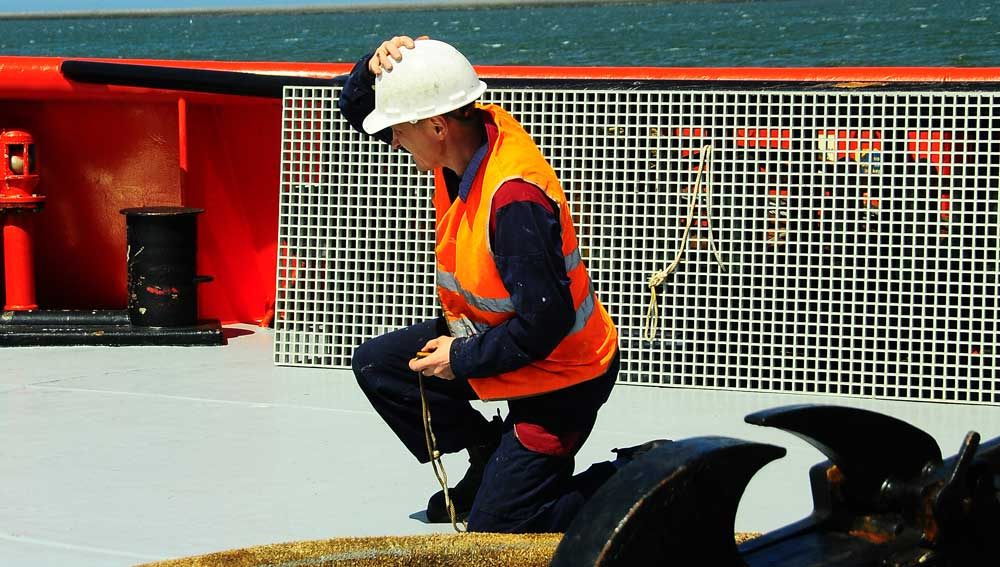While the plight of seafarers during the pandemic, the challenges of crew changes, and COVID-related quarantines have fallen from the daily headlines, seafarers continue to be the invisible victims of COVID-19. Responding to the hardships faced by crewmembers and their families with the escalating crisis in India, leading seafarer welfare charities and the shipping industry have launched an emergency relief fund. The target is to raise $1 million.
The Seafarers International Relief Fund was established by bringing together leading international seafarer welfare organizations, The Seafarers’ Charity (formerly Seafarers UK) supported by The Mission to Seafarers, ISWAN, Sailors’ Society, and others. Highlighting the escalation of COVID-19 cases in India to more than 400,000 per day, which has brought about new lockdowns and prompted major ports to prohibit ship crew changes for seafarers with recent travel history to India, Bangladesh, Nepal, Pakistan, and Sri Lanka, the charities united in an appeal to the shipping industry to deliver urgent support to seafarers and their families in India.
Speaking on behalf of the newly established relief fund, Catherine Spencer, Chief Executive of The Seafarers’ Charity, said, “We are all shocked by the scenes from India, where an already critical situation is getting more desperate with every passing hour. India is facing a crisis on the frontline of its fight against the pandemic and this is directly affecting seafarers and their families who have already suffered tremendously over the past 15 months. By joining forces to form the Seafarers International Relief Fund, our aim is to send a clear message about the urgency of the crisis faced by seafarers globally; pooling our resources to ensure that support can be delivered as quickly as possible.”
Major shipping organizations immediately pledging their support to the fund. Among the growing list of companies are Anglo-Eastern, Ardmore Shipping, A.P. Møller – Mærsk, Cargill, Hafnia, IRI (Marshall Islands Flag), MSC, Pacific Basin, and V.Group.
Mark Cameron, COO of Ardmore Shipping, speaking on behalf of the organizations who are supporting the fund said, “As we have seen the situation in India deteriorate rapidly over the past few days, it is clear that this unprecedented crisis required an unprecedented response from all of us. Many of those at sea are desperately worried about their families, as the situation in India continues to get worse. With limited contact with home, they are caught between ongoing travel restrictions and the crew change crisis, and the understandable desire to continue working to support their families.”
Global shipping organizations also immediately joined in on the calls for support adding their voices to the appeal for donations to the fund. It often takes a crisis to bring people together,” said Esben Poulsson, Chair of the International Chamber of Shipping. “The fact that seafarer charities have come together signifies the scale of the challenge before us in the short-term and looking further ahead. I am calling on shipowners and all those engaged in the maritime sector to support this initiative and consider increasing your contribution to seafarer charities at this time. When faced with significant challenges that maritime community always come together – this is what we do.”
The Fund will be used to deliver aid through existing welfare programs run by the welfare partners in India, to make sure that support reaches seafarers and their families as quickly as possible, as well as ensuring that support can remain in place over the challenging weeks and months ahead.
Although the immediate focus of the campaign is on India, other countries also remain highly vulnerable to the pandemic. The goal of the SIRF is to stand ready to support seafarers and their families afflicted by the pandemic in other countries, should the need arise. This program is also in addition to the Seafarers Emergency Fund (SEF) administered by ISWAN available to provide immediate, essential aid to seafarers and families of seafarers, who are directly involved in sudden or unforeseen crises.
Source: The Maritime Executive






